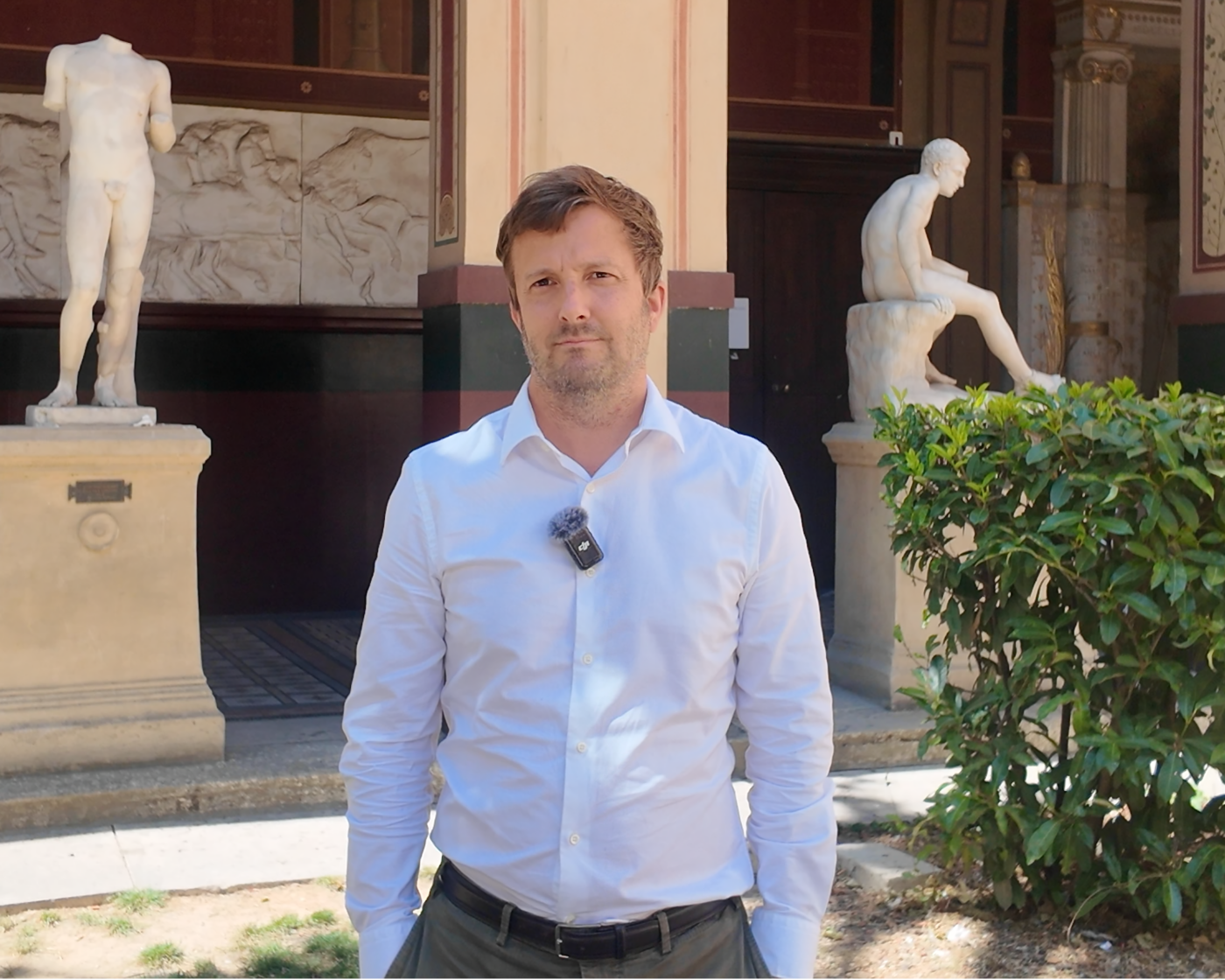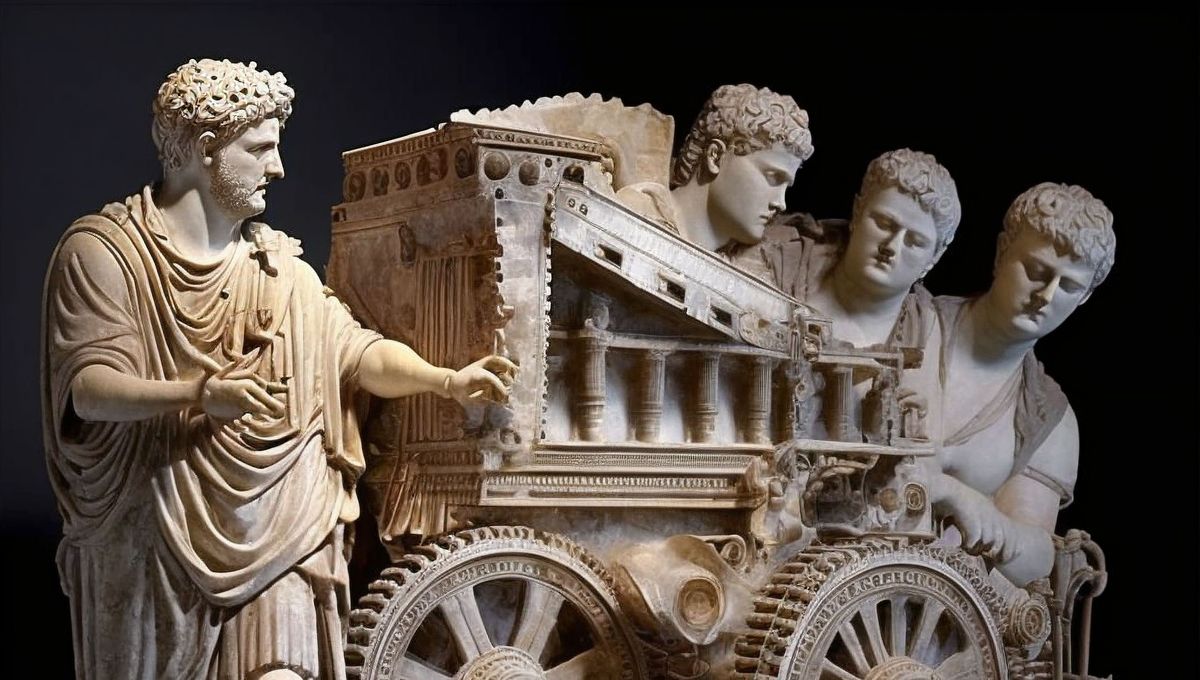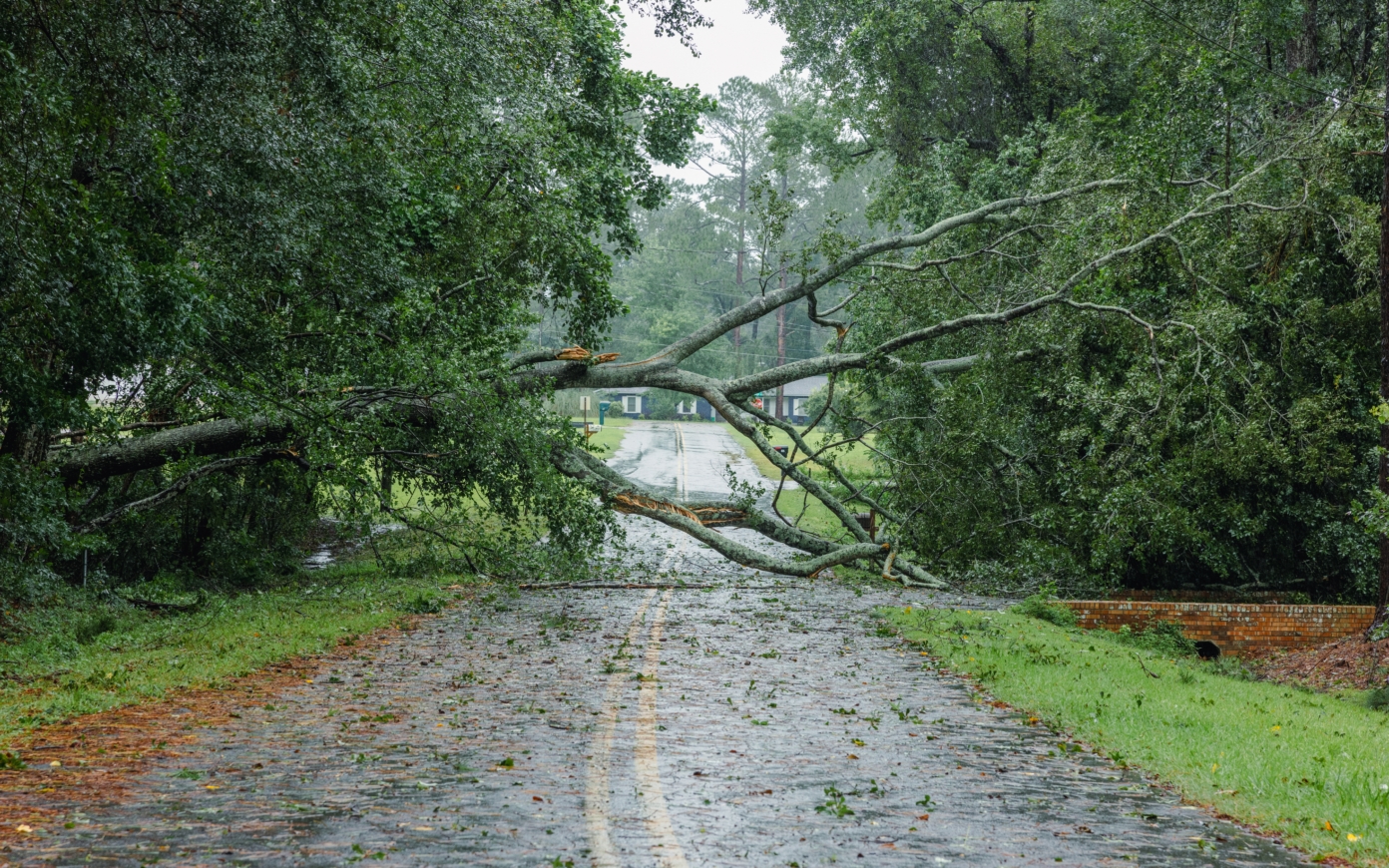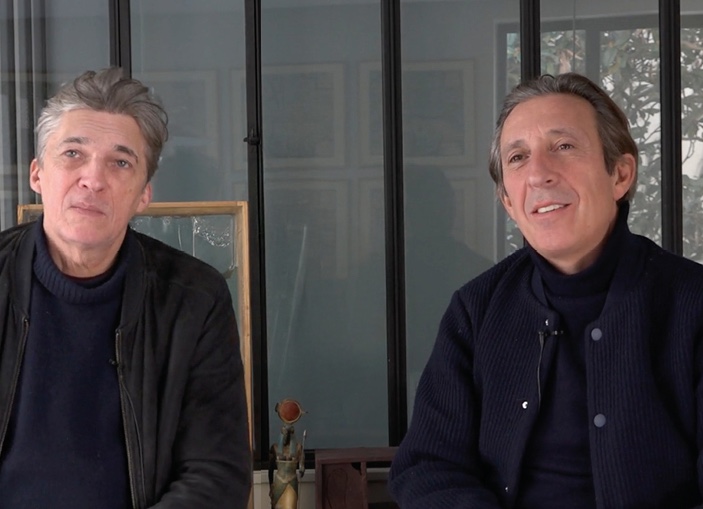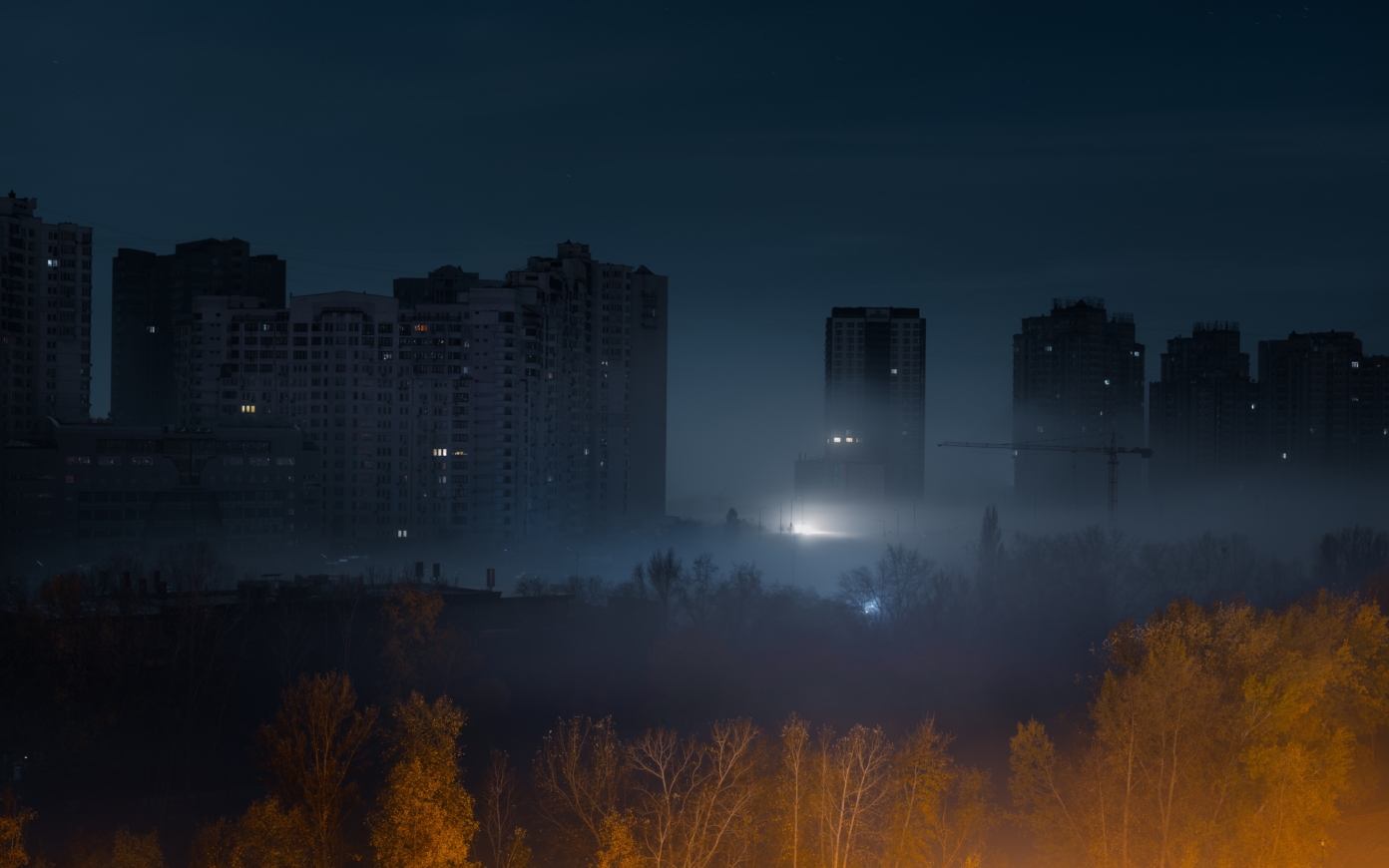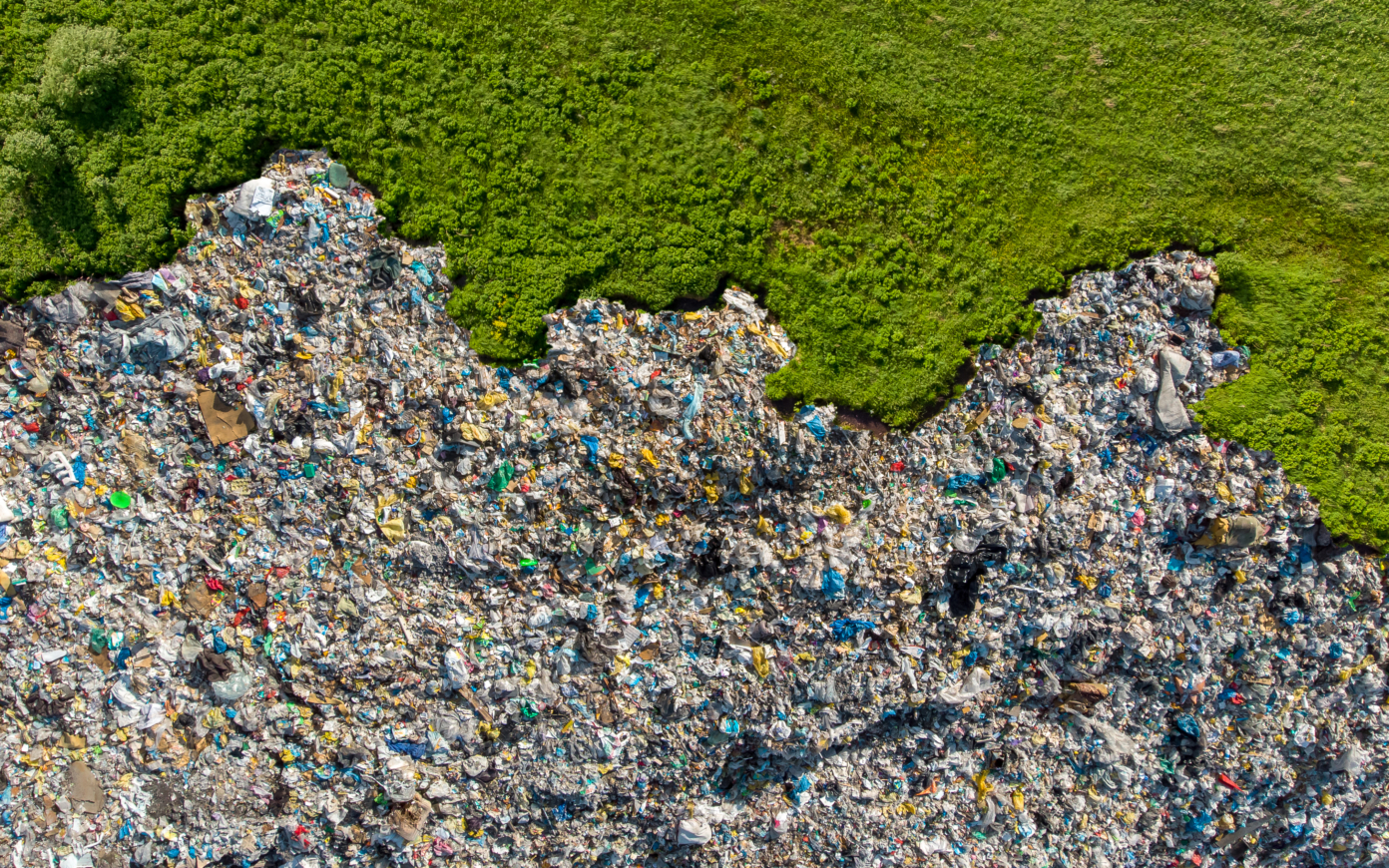Future of Time

- Publish On 11 January 2017
- Etienne Klein
Our altered relationship to time is at the very core of contemporary mutations, and the disruption of time has in fact become an obsession for our societies. The result of changes in technology and our new lifestyles, our experience of time is such that it feels fragmented, fleeting, accelerated or multiplied—even though, of course, it can only remain the same. For Stream, the physicist Étienne Klein has investigated the idea of an anthropological rupture before explaining his work in “cleaning up the verbal situation” as regards the notion of time, the changes in our relationship to time, the “chrono-dispersive” society, and the questioning of the notion of progress, and its corollary—our incapacity to project ourselves.
Étienne Klein is a physician, philosopher and holds a PhD in philosophy of science. Renowned specialist of the notion of time in physics, he is the director of the Research Laboratory for Material Science at the CEA.
Revolution(s)
Do you feel that the beginning of the twenty-first century is really a time of rupture ? If so, what are the primary factors ?
Although we are probably living through one or even many ruptures, that does not mean we are able to identify them properly. In general, we are not really conscious of the revolutions that we initiate, nor are we conscious of the revolutions we undergo. It is a bit like physics: at first, conceptual revolutions are thought of as simple evolutions. In 1905, for example, special relativity revolutionized our concepts of space and time, most notably the way in which they were connected. Special relativity was first thought of as a simple adjustment to Newtonian physics, which it had invalidated. This example is a parabola: the fact that it is difficult, impossible even, to understand the implications of a revolution at the very moment of its occurrence impacts the language we use to speak of it. Prejudices, approximations, and linguistic habits wear down our ability to perceive the radicalism that is inherent to the changes themselves. Once this initial way of speaking of revolution embeds itself in people’s everyday thought, it is difficult to rethink it in a way that expresses what it really represented.
Yet, there is another factor that confuses our perception of ruptures in progress: we are no longer able to tell which history we are in the process of creating. On the one hand, this is because the consequences of our actions are in part unforeseeable, and on the other, because we have choices to make. Scientific knowledge is paradoxical in that it also produces a very special type of uncertainty: it does not allow us to know what it is that we’re going to do with it. As an example, our biological knowledge enables us to make genetically modified organisms, but it does not tell us whether or not we should make them. This is a question of values, whereby techno-scientific decisions are difficult to make. Such decisions are even more complex considering that we have understood that we cannot know the extent of the consequences of our actions in advance. “If people sometimes know what they’re doing,” warned Paul Valéry, “they never know what their doing will do.” From here stems the collective reflex that has driven us to defiantly maintain incertitude in the face of what we know, and what we do. The idea that there is no mastery over innovation sometimes even takes precedence over the discourse that scientific progress is always positive. This is how uncertainty has become the fundamental component of the relationship between society and the scientific and technical world.
That said, there is one area in which we are sure of being close to a form of rupture: energy. We know in fact that our development model brushes up against two major constraints: the increasing rarity of conventional resources of oil and natural gas, which are the easiest and most cost-effective to tap into; and climate change, which has been brought on by greenhouse gas emissions. That is why the feeling of a forthcoming crisis arose—we took heed of the problem and the difficulty of resolving it at the same time. Despite being convinced of the necessity of addressing our behavior as regards energy consumption, collective consciousness appears at once paralyzed and indecisive. Frozen in the face of the obstacle, and hesitant with regard to the nature and intensity of the transition to be undergone, people come to doubt their own ability to act. Collective consciousness then finds itself in the exact situation that Hegel has described as “unhappy consciousness.”
The extent of our energetic servitude has become clearer over time. Societies know that in order to maintain their systems of production and consumption they must continue to “grow”—that is, to consume more and more energy, ever more rapidly. However, compared to previous crises, in which the discovery of a new source of primary energy always seemed to solve the problem, our societies are now threatened with the noxious and irreversible effects that have been brought on by excessive consumption. A loss of confidence in the idea of progress has now taken hold. “Progress” has been reduced to the contradiction of seeking innovations that simply prolong a cycle that has reached saturation point and transform the energetic regime of our societies.
The question that we must collectively solve is the following: are we able to invent a new mode of production and consumption that will help us break free from the shackles of energetic servitude? In the face of this problem, on a planetary as well as an individual scale, it would be irresponsible to pretend as if nothing has happened and as if science were going to solve it all. Even if we have to research and prepare ourselves, technological ruptures cannot be our main source of hope, because many of these still remain deeply hypothetical. It is not up to science to deal with everything. We must not let ourselves be swept up in utopic diversions that take us so far away from the problem that they would have us believe that everything will be resolved in a kind of “business as usual.” It is a simple matter of coherence: we cannot expect the intellectual and material principles that created our world, and which are now used to diagnose it, to prescribe remedies. This is not about disbelieving in science, but about recognizing that it alone will not be able to provide the solution.
Underlying the general idea of progress is the conviction that its “negative” sides can be relativized, seeing that the “purely negative” does not exist. It is like the skin on the milk—that is to say, the part on which we will be able to act in order to make changes for the better. Declaring oneself progressive or modern entails believing that negativity contains a driving energy that can be used to transform it into its opposite. However, this hope faded over the course of the twentieth century, which has been so sobering in many ways. It has even brought us to the “after” of this idea; to a critical and doubtful phase. In some respects, “postmodernity” was modernity without illusions. Illusion was the idea that society could have an end state, in which there would be nothing else to do but continue, and repeat, without exerting any more effort than what had originally been required to get to that state. We understand that the number of problems does not decrease as we move forward. Progress is not understood as a pure relief, but as a concern, a diffuse feeling of uneasiness.
An anagram for the idea of progress is the degree of hope. Of course, the coincidence of the two is somewhat a matter of happenstance, but one in which we can nonetheless attempt to find meaning—in order for the belief in the idea of progress to regenerate and become sincere again, we must create an affective and intellectual filiation between ourselves and the future. Configuring and representing the future requires preparation. Otherwise, it remains intellectually dormant, and it is besieged by fear rather than desire; future and hope are sequestered. It is not a matter of allowing oneself to be seduced by purely utopic expectations, but of keeping the horizon of waiting from receding. Utopia only heightens the desperation in our actions. Because it is not embedded in our experience, it cannot point the way to the ideals that it always locates somewhere else, far away.
People from my generation (I was born in 1958) grew up on weekly comics such as Tintin and Pilote, which always portrayed what life would be like in the year 2000—how people would be working, moving, eating, and so forth. While most of these anticipated futures have turned out to be false, that didn’t stop the fact that the future was there, right under our noses! It wasn’t thought of as a pure and empty haven, but as a time that would really happen. It was enough to chart a course, to liven up our day and age by giving it historical potency. Today, when we take the risk of making a forecast, we don’t go any further than 2025, which is practically tomorrow. What about 2050? We must work at configuring our future better.
The notion of progress that accompanied such projections was “consoling” in two ways. First, by feeding the hope of improving living conditions in the future, it made history bearable. More specifically, it dangled the prospect of utopia ahead of us. It was indeed a desirable utopia, but one that would not appear on its own. It would only be attainable if we “gave it our all.” As it was both believable and attractive, it made us pull up our socks, roll up our sleeves, and get moving. Progress in these terms was also consoling in that it gave meaning to the sacrifices which it demanded. Working toward a certain ideal for the future meant that humankind was required to forward a notion of progress which individuals could not experience themselves, because they were but tiny links in an endless chain of generations. Kant identified this when he wrote that the idea of progress provided “a consoling view of the future, in which the human species is represented in the far distance as having at last worked itself up to a condition in which all the germs implanted in it by Nature may be fully developed, and its destination here on earth fulfilled.” Believing in progress basically meant refusing to be bohemian; it entailed sacrificing the personal present in order to build a shared future. Are we there yet, though ?
Sciences and the idea of progress
Getting back to the idea of progress, I would like to discuss science: thirty years ago when I was preparing for university, we thought of science as a wave that would slowly come to rationalize the world in its wake.
That is true. Yet that idea was met with resistance even then, particularly by certain philosophers who contested the increasing part that technology had begun to play in our ways of being in the world. This contestation has not disappeared, on the contrary, it has become stronger to the point that technology now finds itself up against two intensely opposing forces. The first of these is technology itself, which has entered into every aspect of everyday life. The intrusion is so intense thattechnology seems to go beyond the level of individual action, and even of collective action. The anthropological function of technology has thus become a new form of the divine, a non-religious form of the “sacred” that nonetheless possesses all the characteristics of an omnipotent god. The second of these forces is in opposition to the first—it is a more or less diffuse resistance to the increasing affluence and influence of such technical objects. Its principal manifestation is in the fear that society is moving too quickly toward the unknown, or toward excess.
In this new context, scientists are summoned to avoid catastrophe—or even its possibility—at all costs. This is how the discourse of catastrophe takes on real meaning, at the same time as a legitimacy in the media, even if the catastrophe in question is a purely fictional construct.
Philosophers such as Bruno Latour and Edgar Morin explained in the 1970s and 1980s that we had never really been modern. They made us reconsider the idea of progress entirely, and the aftershock of their observations is still felt today.
Yes, but there were warning signs, even then. Foresight told us that there were shadowy sides to the idea of progress from the industrial era onwards, which had already begun to show themselves in a few different ways. The first indication was the fact that defining progress by economic development legitimized horrible forms of worker exploitation. It also became clear rather quickly that the environment had suffered, because a corollary of the development of production and technology was the pollution of cities. Both of these factors were written about by Karl Marx just as much as by Charles Dickens. Science was set within a more overall project, however. It was just a means to a transcendental end; a “civilizing project.” These kinds of projects do not exist anymore, because innovations are made in and of themselves and not in the service of a more general pre-configured outcome that they would make possible. Moreover, through the controversies that have arisen from the application of science, everyone knows that the political project of the city-state is the end goal: socially speaking, what is it that we are doing with the knowledge and power that science provides us? Should we use each and every part by principle, in the name of progress, or should we pick and choose what we need according to what suits us?
The present debates around energy and the climate are a relatively new phenomenon. We are caught between the climate-sceptics and the followers of Donella Meadows, as if there were doubts about the truth of it all.
Competent scientists no longer debate this point; they have already agreed that human activity has contributed to climate change. In the media, however, there is a resurgence and/or persistence of a particular form of “scientific populism,” which consists of using seemingly sensible arguments in order to refute the work of scientists. This scientific populism does not develop around just any subject: there must be conflicting interests at stake. The monumental discovery of the Higgs boson in 2012 never managed to make such a stir.
Everything happens as if society were beset by two different, contradictory forms of thought. On the one hand, there is an intense attachment to truth, a concern for not being duped, and a determination to break through the facade of appearances so as to get to the real motivations hidden behind them; in short, an overall attitude of defiance. On the other hand, however, co-existing with this desire for veracity and the refusal to be duped, is an equally significant form of defiance toward truthfulness itself: does truth really exist? If it does, can it be anything other than relative, subjective, and cultural? What is problematic is that these two mutually exclusive, contradictory attitudes—attachment to truth and the concomitant suspicion toward the existence of truth—turn out to be perfectly compatible in practice. They are even mechanically linked, because the desire for veracity is enough to motivate a critical process in the heart of society which then weakens the assurance that there really is truth. We continue to affirm our love and desire for truth, accepting it for what it is, but it is perhaps just a recurring fable. Against our most stalwart declarations, we are often more apt to proclaim the ideas we like as true than to like the ideas that really are true.
This kind of intellectual climate emerges from the rise in power of ultra-relativist ideas: science is accused of having gained its power exclusively by the authority of its argumentation, and not because it maintains a privileged link with “truth”—to the point that its claims can be challenged, even made to seem ridiculous. Yet there is something else, referring to the philosophy of the Enlightenment, and more specifically to its slow extinction. One of the prominent ideas at the time was that the sovereignty of people came up against a boundary, that of Truth, a domain over which it had no control. Truth was only a matter of collective vote. In a democracy—this is where things get interesting—it is this independence from truth that protects the autonomy of the individual, because the entire operation can be put into question at any given time. The picture-perfect agenda set by the Enlightenment slowly gave way to the idea that “science is doubt,” which paradoxically became the leitmotiv of all climate-sceptics. So science is doubt? Really? Must we then still doubt—in the twenty-first century—that the world isn’t flat ?
The great division in Western thought
What is still captivating about reading Bruno Latour and Gilbert Simondon is the idea that classical science since René Descartes leads us to a dead end by establishing a distinction between subjects and objects, the organic and the inorganic. Having arrived in the Anthropocene, we have rediscovered that we are not separate from nature, and we are witnessing a return of the living, metabolic figures in the different fields of research, contemporary art, architecture, and urbanism.
Here, we find ourselves faced with a painful contradiction: despite the fact that we think our mode of development may be universal, we know that its extension to all of humanity over space and time would entail coming up against merciless obstacles. A contradiction thus emerges between our insistence on equality and our modes of development. That is the rub: we, the wealthy, can either cut ourselves off from the world, raising our shields to it, or we can invent another universally applicable mode of development. What is going to happen? No one knows, because the right answer depends directly on what we—and by that, I mean humanity—manage to do over the coming years.
So where is science, in all that? Some feel it should shoulder the blame for all the world’s problems, citing the ghastly specters of progress. They feel that we should renounce our desire to understand the world in which we live. Attraction toward the unknown then cedes to fear in the face of uncertainty: we must pack it in and organize a vast intellectual withdrawal. Theirs is a strange proclamation indeed. How can we think that in knowing less we can know what to do better? I understand that indecision can become the rule in the face of difficult problems. Yet, there is at least one thing we can be sure of: we will not be able to preserve biodiversity using Pliny the Elder’s biology; nor will we be able to regain climactic stability using Aristotle’s philosophy. Science must not be done away with just because the world is misused.
As Bruno Latour has suggested, the Anthropocene must also be rethought. This requires us to go back to Galileo—back to the beginning of modern physics. The transformation of nature into equations began in that era. It was an act that gave physics its power, but it also had a flip side: it meant a subtle but decisive shift in Western thought. The idea that nature was an assembly of separate, independent, material bodies took hold with Galileo. A natural form of causality closed in on itself, autonomous, and thus exterior to humans, emerged from this split. The world was dissociated: nature was on one side (understood exclusively from a psychomathematic angle), and humankind was on the other, set apart from nature by its capacity to reason and feel.
This divide is the mark of originality in modern Western thought—no other human society co-inhabited with the non-human world in such a manner. Yet it was because of the separation between nature and culture that modern science became efficient. It is also the reason why nature, which we came to treat as if it were ours and ours alone, began to be destroyed. We left our indelible mark on it with little remorse, forgetting that it is porous, responsive, and fragile. Now, at a time when nature seems to be fighting back, at a time in which we worry about climate change, the scarcity of fossil fuels, the degradation of biodiversity, and the like, the question begs to be asked: is it not our concept of nature, founded on the idea that we are independent of it, which laid the ground? The same ground that first enabled the exploitation of nature, and then its servitude? In my opinion, it is absolutely imperative that we change our relationship to nature, but we cannot and must not do away with the knowledge that we have gained from the Galilean split.
Bruno Latour did open up questions, but the answers he provided are not complete. In On Complexity: Advances in Systems Theory, Complexity, and the Human Sciences, Edgar Morin speaks of striking a sustainable balance in seeking references that remain within science, but . . .
…Which introduce a certain amount of flexibility where physics sees invariance. Yes, I too appreciate Edgar Morin’s analysis. Quite simply, are we capable of assigning ourselves a goal? Complex thought makes political action more difficult if we take it too seriously, because it requires us to consider all the retroactive loops that can come from a decision, and to admit that we are under a regime of entropy that is growing at a vertiginous pace. For example, I am not sure that we are capable of thinking of contemporary mobility properly, or the dynamic of cities that are built and un-built in a flick of the wrist. We know how to create a city for two million people, because we have already done it, but we may not know how to do it quickly. What kind of social connections are established in a city built from scratch? How shall transport be organized? Are we able to see that ahead of time? I am not so sure.
Our experience of time
One of the particularities of this new condition is that it is an urban one. The observation is well-known, global urbanization is recognized; we will all be urban in the future. But human lifespans have increased considerably and this has not really been taken into consideration. The impact of such complete lives has not been accounted for in the creation and administration of cities, not to mention the lifespans of new technologies, which have produced relatively recent effects such as ubiquity, lifestyles that lead to multiple utopias, and multi-temporalities. The foundation of our relationship to space-time has profoundly changed; it is a subject on which many have commented.
“The weather was a time to be remembered” (“Il fait un temps de temps”) said André Breton in the poem, “Le Verbe Être.” Time seems to have made history; it is making waves in present-day thought, it is bandied about everywhere. It must be said that the dazzlingly polysemic nature of the word itself has meant that no one really knows what they are talking about when discussing time. Succession, simultaneity, duration, change, the future, urgency, waiting, wear and tear, speed, aging, geological revolutions that end up affecting our faces, even money, and death. That is just far too much for one little word. Our dictionaries need cleaning up, maybe some semantic sharpening, or even a bit of what Paul Valery calls “cleaning up the verbal situation.” So much that—a strange thought—the word “time,” which is perfectly clear when we use it in daily language and which poses no problems at all when it is part of the train of thought in an ordinary sentence, all of a sudden becomes awkward when we remove it from its situation and consider it outright. It turns into an enigma, pulls away, and upends thought.
What would physics equations say of time if they could speak? First, they might tell us that our experience of time has taught us a lot about ourselves, but told us very little about time itself. Second, they might warn us against linguistic mirages: as soon as it is put into a sentence, the word “time” gives us the impression of understanding, where there is in reality no real knowledge. Language has a tendency to mix up time and temporal phenomena. The way we use the word leads us to attribute properties to time that it simply cannot have. Under the assumption that some moments seem to last longer than others, and that still others go by even more quickly, we believe that there is a sort of modification of time as regards our activities, the tension of our schedules, and the dynamic of our attention spans. Yet in reality, however we perceive time changes nothing of its passing—a minute only lasts a minute no matter what it seems like in our heads. Our brains are a terrible register of chronology; they go off all the time. That is exactly what wristwatches are for: their entire goal is to get our paltry internal pendulums back into the swing of things. Today, when people realize that their lives are speeding up, and that their agendas are saturated, they say that “Time keeps going by faster and faster!” as if the action of time were coupled with their schedules; as if it were equipped with a speed and even an accelerator.
The growing success of the expression “time keeps speeding up” seems to me to be the best indicator, not of our time, but of the relationship that we have with our time. Proclaiming that it is the velocity of time that increases just because the rhythm of events intensifies is to create a false simplification. It deforms the physical relation that we maintain with the world and with other people. In reality, we are less the victims of a so-called acceleration of time than of a superimposition of multiple, heterogeneous, and often conflicting present times: whilst working, we glance at the screens of our portable phones, listen to the radio, and think of something else altogether. This is without doubt part of an anthropological shift, which excites us (in that it creates a feeling of existential turbulence) just as much as it stresses us out (in that it seems to go beyond us, burying and even burning us). The change has come about so quickly that our brains, which have evolved slowly, have not had the time to adjust to such continuous juxtapositions of stimuli. We must not forget, however, that many people in our societies are bored to death. Others—often the same people—find the time to watch five hours of television per day. Not everyone is vibrating at high speed.
Humans are not all equal as regards existential intensity. What is happening is that the time that each individual has is desynchronizing. According to the theory of relativity, the desynchronization of clocks is a function of their relative movement in space. Here, however, it is not movement that impacts our individual clocks. All of us are in the same place, more or less immobile in relation to each other, but we do not live in the same present time. We are not really together; we do not have the same relationship to everything that is happening around us. Our society seems to me to be submerged in a form of chrono-dispersive entropy which affects the intensity and quality of our social connections.
(This article was published in Stream 03 in 2014.)

